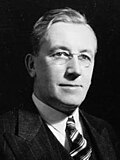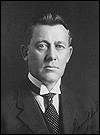June 19, 1934 | |||||||||||||||||||||||||||||||||||||||||||||||||
55 seats in the Legislative Assembly of Saskatchewan 28 seats needed for a majority | |||||||||||||||||||||||||||||||||||||||||||||||||
|---|---|---|---|---|---|---|---|---|---|---|---|---|---|---|---|---|---|---|---|---|---|---|---|---|---|---|---|---|---|---|---|---|---|---|---|---|---|---|---|---|---|---|---|---|---|---|---|---|---|
| |||||||||||||||||||||||||||||||||||||||||||||||||
| |||||||||||||||||||||||||||||||||||||||||||||||||
The 1934 Saskatchewan general election was held on June 19, 1934, to elect members of the Legislative Assembly of Saskatchewan.
Contents
- Results
- Percentages
- Ranking
- Riding results
- Northwestern Saskatchewan
- Northeastern Saskatchewan
- West Central Saskatchewan
- East Central Saskatchewan
- Southwest Saskatchewan
- Southeast Saskatchewan
- Urban constituencies
- See also
- References
- Further reading
The Liberal Party of former premier James Gardiner was returned to power with a large majority – 50 of the 55 seats in the legislature – after the four year Conservative minority government interlude.
After forming a coalition government to oust the Liberals from power after the 1929 election, James T.M. Anderson's Conservative government had tried to use anti-Catholic and anti-French Canadian feeling in the province to win support. The Conservatives also had the support of the Ku Klux Klan, which was a significant force in the province at the time. [1] [2] [3] The Tories also had to contend with the effects of the Great Depression and the prairie Dust Bowl, however; and although they won about a quarter of the popular vote, they won no seats in the legislature. The Conservatives remained a minor force in Saskatchewan politics for 40 years after this defeat.
The Tories' allies in the previous legislature – the Progressives – did not nominate candidates in this election, and were replaced by Farmer-Labour candidates as the voice of the Left in the province.


